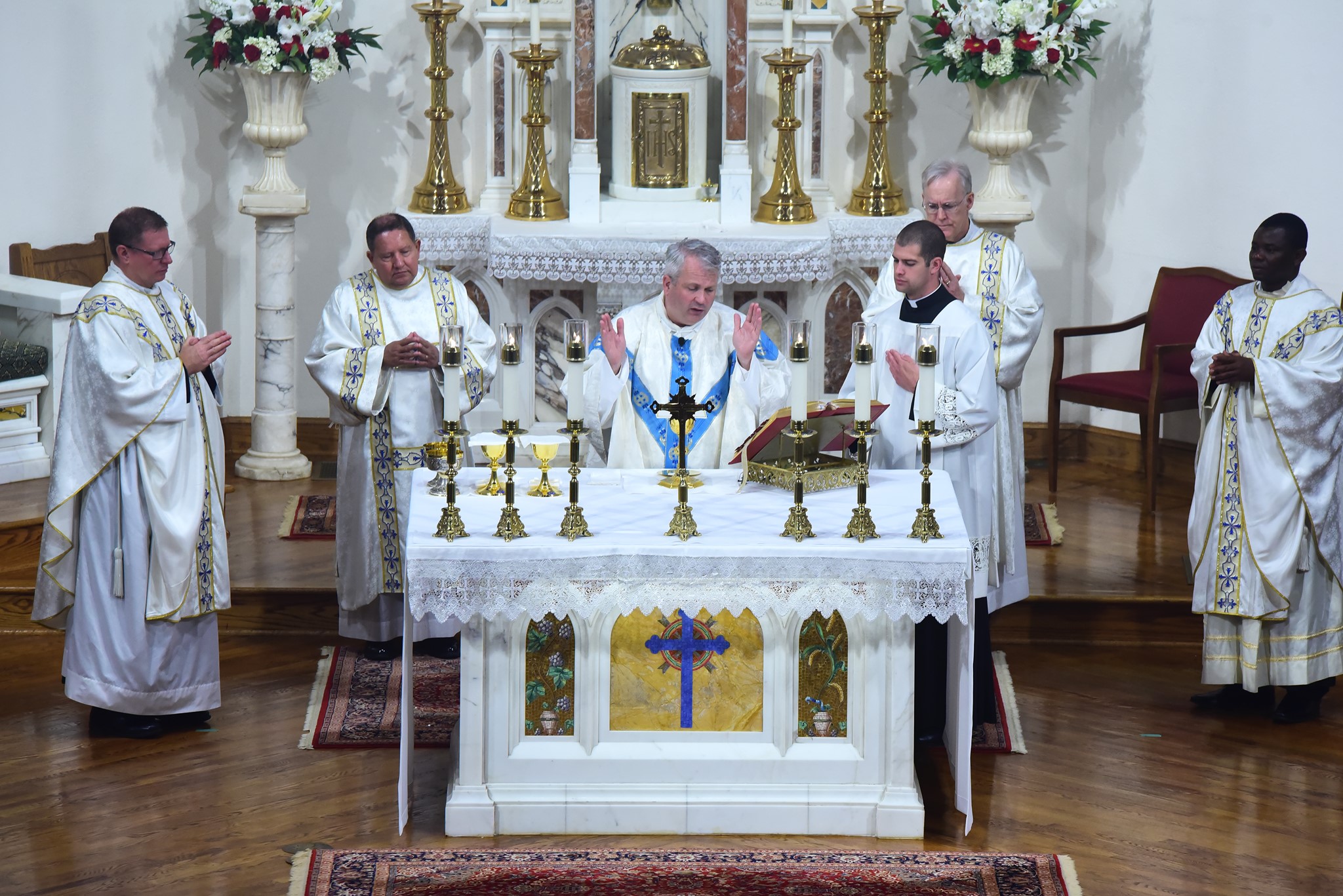 CHARLOTTE — Memorial Day is not just a day to remember the people who have died in service to their country, it is a day to acknowledge the freedom we enjoy because of their self-sacrifice.
CHARLOTTE — Memorial Day is not just a day to remember the people who have died in service to their country, it is a day to acknowledge the freedom we enjoy because of their self-sacrifice.
That was the homily message from Monsignor Patrick Winslow, vicar general and chancellor of the Diocese of Charlotte, who celebrated Mass at St. Patrick Cathedral for military personnel and their families May 31.
Approximately 100 people attended the annual Mass, which honors all military personnel whether active, retired or deceased.
“On this Memorial Day, all of us realize that we have been either directly or indirectly affected by loved ones we have lost in service to our nation,” Monsignor Winslow said.
The holiday often brings feelings of great pain mixed with great pride, but in addition, Memorial Day “aligns so beautifully with the practice and the depth of our own faith,” he said.
The word “memorial” itself does not mean “a mere recollection of the past,” he explained. In the Judeo-Christian sense, a memorial honors events in the past from which we continue to benefit.
For example, he said, the Israelites set aside a day to ritually give thanks to God after they were freed from slavery in Egypt – recognizing that “they were the beneficiaries of the fruit of that event.” They realized that God’s saving action “is still unfolding.”
“They recalled the past, recognizing that it made possible the present, and therefore their recollection of it was also an experience of something now,” Monsignor Winslow said. “In this sense – this deeper Judeo-Christian sense of memorial – I think we have a better sense of how to remember and memorialize this secular remembrance.”
“We don’t just recall the past and those who gave their lives… but rather, we recognize the freedom that we share is a direct result of it, and therefore we participate in that past. So our memorial is not just a look backward, but also an acknowledgment of the present.”
Memorial Day also reflects the mystery of the cross, Monsignor Winslow noted.
Those who have died in service to their country mirror Jesus’ offering of Himself on the cross for our salvation, he said.
Yet His self-sacrifice for our benefit is a model for all of us to follow – not just for people serving in the military.
“The truth is, all of us are meant to follow in the path of the cross of Christ. That is to say, our lives only find meaning when they are made a gift – a gift to God and to others.”
“All of us, if we are to embrace the cross, then we are to make a gift of self – in different ways, different respects – but life ultimately finds its fulfillment in this offering of love,” he said.
On Memorial Day, he said, think of what a memorial means and how our faith calls us to self-sacrifice.
“It is right that we remember the families who experience the pain of their loss, that we acknowledge we sit in freedom today because of that, and therefore our remembrance is a living remembrance and not a mere recollection of the past,” he said.
“It is right that we pray for the souls of those who have lost their lives in service to their country… that we pray for their families who have been profoundly affected, and that we express our gratitude,” he said.
“May they rest in peace.”
— Patricia L. Guilfoyle, editor
At top: Monsignor Patrick Winslow offered the annual Mass for the Military May 31 at St. Patrick Cathedral in Charlotte. (Photo by James Sarkis)













